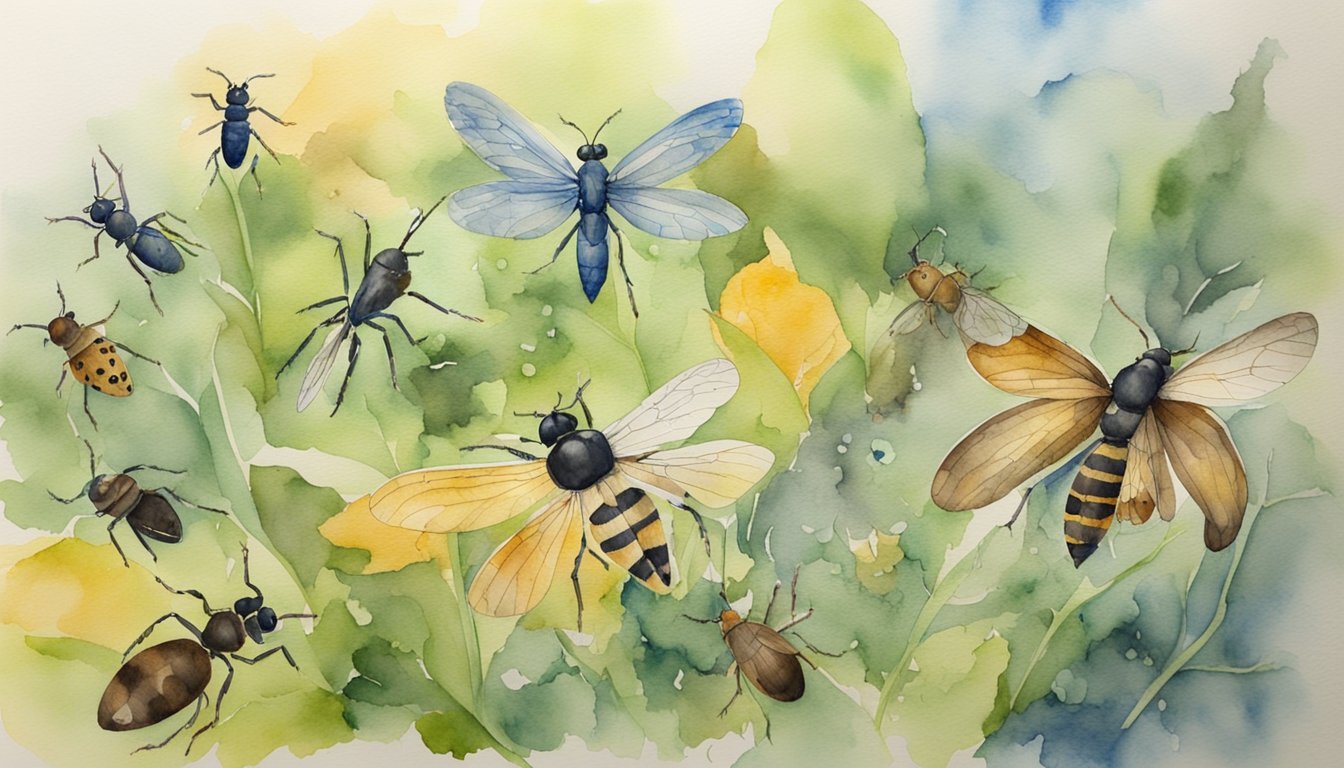Insect Digestion and Excretion
Insects process and dispose of waste in a unique and efficient manner. Their digestion and excretion systems are specially adapted to their diminutive size and varied diets.
Understanding Insect Digestive Systems
The digestive system of an insect is divided into three main sections: the foregut, midgut, and hindgut. The foregut is responsible for the intake and initial breakdown of food. It comprises the mouth and esophagus, which then leads to the crop for temporary food storage. The midgut is where most of the digestive enzymes are and where nutrient absorption occurs. Finally, the hindgut handles the concentration of waste products and their eventual excretion through the anus.
The Defecation Process in Insects
Insect feces, commonly called frass, are the solid waste products excreted by insects. After digestion in the midgut, undigested materials progress to the hindgut, where they are compacted. Special structures called Malpighian tubules extract nitrogenous wastes, such as uric acid, from the hemolymph and add it to the hindgut contents. The waste then moves to the rectum, absorbs water and salts, and is finally expelled through the anus during defecation. The first defecation of many insects, after they molt to a new stage, is termed meconium.
Types of Insect Waste
Insects produce waste in the form of solid frass and semisolid or liquid uric acid. The consistency and composition of the waste can vary widely depending on the insect’s diet and habitat. Some insects may use their poop for defensive purposes or, as in the case of dung beetles, as a food source. Others have developed methods of flinging their feces away from their living areas to avoid detection by predators.
Insect Poop in the Ecosystem and Research

Understanding the impact of insect poop on ecosystems and the ongoing research reveals its significance beyond mere waste. It is a vital component in nutrient cycles and possesses unexpected uses in various fields, including agriculture and medicine.
The Role of Insect Feces in Nature
Insect feces, or frass, is more than just waste; it is a crucial part of nutrient cycling within ecosystems. Frass contributes to the soil’s fertility, acting as a natural fertilizer rich in nutrients like nitrogen, which plants absorb to grow. The decomposition of frass by microbes further enriches the soil microbiome, contributing to healthy plant life.
- Nutrient Cycling: Insect poop helps cycle nutrients through the ecosystem, facilitating plant growth and maintaining soil health.
- Microbiome Enhancement: The microbes involved in decomposing frass diversify and stabilize the soil microbiome.
Scientific Research on Insect Excrement
Entomologists and biologists have observed that the microbial communities present in insect poop may have antimicrobial properties, possibly defending against pathogens. Research into the antimicrobial activity within insect frass holds potential for the development of new antibiotics and probiotics.
- Potential for Antibiotics: Investigations into the antimicrobial activity within frass may lead to novel antibiotic discoveries.
- Probiotics Development: Studying the probiotic capabilities of frass microbes can benefit human and animal health.
Cultural and Medicinal Uses of Insect Feces
While often overlooked, insect poop has been part of traditional herbal medicine, revered for its pharmacological properties. Historically, certain frass types were used in cleansing flights for waste removal and are believed to contain beneficial compounds for health.
- Herbal Medicine: Insect feces have been employed in traditional health practices for their supposed medicinal properties.
- Medicinal Research: The pharmacological potential of insect poop is a subject of current research, exploring its application in modern medicine.
Insect poop plays a multifaceted role in nature and offers exciting research avenues in various scientific and cultural contexts.

